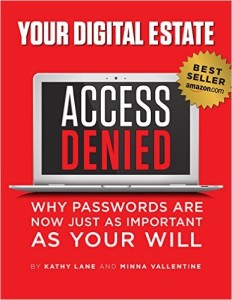![]() Earlier this year, we wrote about the first state to adopt the new, revised UFADAA (Uniform Fiduciary Access to Digital Assets Act) recommended statute. This statute makes clearer the ways which an estate executor and others can deal with your digital assets when you die.
Earlier this year, we wrote about the first state to adopt the new, revised UFADAA (Uniform Fiduciary Access to Digital Assets Act) recommended statute. This statute makes clearer the ways which an estate executor and others can deal with your digital assets when you die.
Indiana, this week, joined the ranks of states that have decided to pass a “law that addresses the rights of a fiduciary, such as a personal representative, trustee, attorney-in-fact or guardian, to access digital property, such as online financial accounts, emails, texts, social media accounts and online document and picture storage.”
Since digital assets are a large part of many people’s estates, this new act has become more important. States are recognizing this and, as of this date, many have either adopted the act or are in the process of considering it.
For information about whether your state has adopted this important act yet, click here.
For more information about digital estate planning, check out our book “Access Denied: Why Passwords Are Now As Important As Your Will” or go to our website www.diesmart.com.


